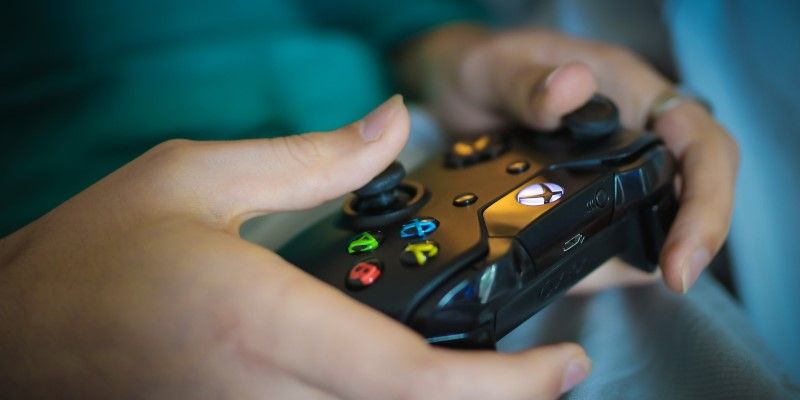
Playing video games as a young child has been linked to an increased body mass index (BMI) as a teenager.
Scientists from the University looked at the health and behaviour of more than 16,000 children in the UK at multiple points during their childhood and early adolescence – first at age five, then again at seven and 14.
They found that children who regularly played video games as a young child had a higher BMI nine years later, compared to those who did not play video games.
The effect remained even when accounting for the amount of other screen time children were exposed to, such as watching television.
Consumption of sugar-sweetened drinks and an irregular bedtime helped explain part of the video game-BMI link, suggesting these associated behaviours may be partly responsible for causing the weight change.
The research is published today in JAMA Paediatrics, and is the first study to look at the potential effect of video game use on children’s BMI over time.
The work was funded by Cancer Research UK.
Childhood obesity is one of the biggest public health threats facing this country, with over a third of children in the UK leaving primary school affected by overweight or obesity.
Lead author Dr Rebecca Beeken, from the Leeds’ School of Medicine, said: "Childhood obesity is one of the biggest public health threats facing this country, with over a third of children in the UK leaving primary school affected by overweight or obesity.
"This research shows a potential connection between gaming in young children and an increased chance of higher weight in later years.
"It also shows that consuming sugar-sweetened drinks and going to bed at irregular times may be partly responsible for the associated increased weight.
"Whilst the effect size across the whole group is relatively small, for some children gaming could represent a significant risk of weight gain. However, we need to remember obesity is complex, and this is potentially just one small part of the puzzle."
The research was conducted by the University of Leeds, University College London, Queen's University Belfast, University of Stirling and The Behaviouralist, London.
In-game advertising
The researchers point out that large amounts of advertising by drinks companies takes place within the virtual worlds of video games.
Brands such as Red Bull, Coca Cola, Boost and Monster, are just some of the many that encourage gamers to buy and consume sugar-sweetened drinks, which can cause weight gain.
Whilst there are restrictions on advertising products like these towards children on television, there are no equivalent laws for advertising through video games.
Dr Beeken said: "There is a recognition that advertising of sugar-sweetened drinks to children should be tightly controlled on television, but advertising within video games has not been considered to the same extent.
"Stricter advertising laws are urgently needed to protect young gamers from being encouraged to drink large quantities of unhealthy products, which we know can have lasting health consequences."
Calculating BMI for children
The researchers studied the data of 16,376 children who took part in the UK Millennium Cohort Study.
The weight measurement they used was body mass index (BMI), standardised for each age group, which is known as BMI-SDS. It is calculated in the same way as BMI for adults, by dividing height by weight, and then comparing to a benchmark for BMI at a particular age.
Children who played three hours or more of video games per day aged five had an associated 0.085 higher BMI-SDS aged 14, compared to those who did not play video games.
The BMI-SDS range considered to be healthy from age five to 20 is -2 to 1, with possible risk of overweight defined as 1 to 2, overweight as 2 to 3 and obesity any score over 3.
For comparison, a previous study found that ten year old children who played sports less than twice a month had a BMI-SDS score of 0.11 higher four years later, compared to those who played sports every day.
Previous research suggests that a 0.25 change in BMI-SDS is needed in order to impact cardiovascular risk in children, so the video game-BMI association is unlikely to be clinically meaningful for heart health. But the researchers emphasise that this is one part of the puzzle that may help us tackle childhood obesity.
Karis Betts, Cancer Research UK’s health information manager, said: "As this study highlights, the causes of obesity are really complex and lots more research is needed to find out how they interact with each other.
"Forming healthy habits is really important, but the world we live in doesn't always make it easy, which is why we need to see measures put in place by the government to help reduce childhood obesity."
PhD researcher William Goodman, who conducted the research whilst at University College London and is now at the University of Leeds, said: "We are certainly not suggesting that gamers or their parents should chuck their consoles out of the window.
"But we think it is important to recognise that some gamers could be at risk of gaining weight, and that there are steps we can take to minimise these risks.
"One option would be to encourage parents to use the inbuilt parental settings on gaming consoles to set time restrictions on how long children can play for. Another option would be to work collaboratively with games developers to embed behaviour change components within games to encourage positive behaviour change.
"There is no way forward without engaging with the gaming community on possible next steps."
Further information
The paper, Is the relationship between video game use and BMI mediated by other energy balance behaviours: A prospective study, is published in JAMA Paediatrics.
For interview requests, please email University of Leeds Media Relations and Communications Officer via d.lewis@leeds.ac.uk
Image by Olya Adamovich from Pixabay